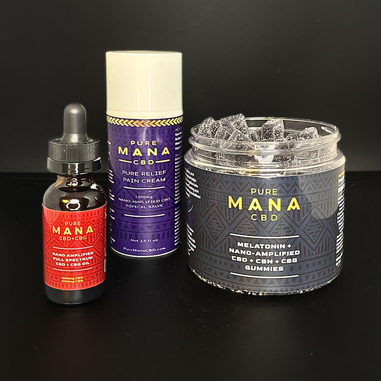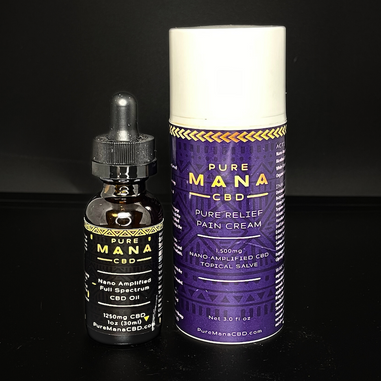How Does Sleep Affect the Immune System?
Article at a Glance:
- Quality sleep boosts your immune system and allows it to focus on the best course of action for every threat.
- When your immune system is healthy, it prevents you from getting sick and keeps you performing at your best.
- For the best sleep, keep a consistent sleep schedule, reduce light in the evenings, and take Melatonin and CBD before bed.
When you don’t sleep well, you’re more likely to experience mental and physical health problems.
Sleep deprivation throws off your internal balance, which makes it hard for your body and mind to repair themselves. It also weakens your immune system, which weakens your body’s defenses and ability to recover from sickness and infection.
Thousands of studies link quality sleep to immune health. A healthy immune system means your body has the resources to respond to every foreign invader with the correct defensive and offensive strategy.

Quality sleep does more than strengthen your immune system; it focuses your immune response. This keeps it in the best possible condition to fight sickness.
Here are some ways sleep helps your immune system fight right.
SLEEP AND YOUR IMMUNE SYSTEM
When you’re awake, your immune system is busy. That means it’s less focused on preventing the next attack.

Blunt Cells
‘Cytotoxic NK cells’ are your body’s first line of defense against intruders. You can think of this type of white blood cells as the blunt weapons of your immune system.
They have a short memory and are most active during the day. Their one, fast-acting approach is to bash anything over the head that they think is dangerous. This quick response is best for dealing with immediate threats, which tend to happen more while you’re awake.

Smart Cells
When you’re sleeping, your body can focus its resources on a targeted immune response. When you get quality sleep, your immune system learns how to fight and prevent complicated threats.
In your immune system, ‘memory cells’ are smart white blood cells. Their job is to find the best way to target a specific attacker. A good night’s sleep can boost the quantity, as well as the effectiveness of your Smart Cells.

Smart Cells: T cells and B cells
The two types of white blood cells that can turn into Smart Cells are called T cells and B cells. Here’s an example of how you turn naïve T cells into smart T cells while you sleep:
- When you fall asleep, naïve T cells begin to migrate to the lymph nodes where they’re most needed.
- Once there, they send out proteins called integrins that attach themselves to invaders and learn about them.
- Integrins are what give your naïve T cells the ability to remember the best strategy for a particular threat. They can both talk to and listen to their target. This makes them incredibly efficient at finding the right way to kill it.
- Integrin activity is a lot higher when you’re sleeping.
Sleep doesn’t seem to affect your B cell count, but many studies show when you’re sleep deprived, your T cell count goes down.
When you consistently get quality sleep, your Smart Cells stay healthy and focused on the best course of action. And just like sleep helps your brain form long-term memories, it also helps your immune system produce its long-term immunological memory.

Collateral Damage: The Cytokine Storm
In a viral outbreak, people with immune systems that are too weak or too strong both tend to end up in the hospital. This is thanks to little cell messengers called cytokines.
Cytokines are another kind of protein made by your T cells. They have various tools that help direct your immune response. For example, they can try to burn a virus out using a fever, choke it out using hypertension, or drown it using inflammation.
But too many cytokines can be just as bad for you as too few. In people with strong immune systems, viruses can trigger an overreaction. Too many white blood cells in one place can create a feedback loop of haphazard cytokine production that runs wild through your system.
In all the excitement, your own immune system becomes confused and starts shooting first and asking questions later. This is known as a cytokine storm.
Sleep Deprivation = Collateral Damage
Sleep deprivation causes your production of pro-inflammatory cytokines to go up.

When you don’t get enough sleep, your body assumes you’re under a lot of stress and slips into ‘Stress Mode’. Stress Mode involves higher levels of anxiety and depression, and lower brain function. It also triggers rapid and relentless production of pro-inflammatory cytokines, which can wreak havoc on both healthy and unhealthy cells.
When you get enough quality sleep, your body can get itself organized and make sure your cytokine levels aren’t too high or too low.

Quantity vs Quality
There are two main types of sleep that we cycle through: REM (rapid eye movement) and NREM (non-REM). NREM sleep has 3 stages from light (1) to deep (3). In stage 3, your brain and heart slow down as you become less responsive to the outside world and your cells are cleansed and recharged.
When you consistently experience deep NREM sleep, your body can repair and strengthen itself. You essentially remove the trash from your immune system, blood flow, organs, and cells while they heal and recharge.
The quality of your health and performance is dependent on the quality of your sleep.

MELATONIN AND SLEEP
Melatonin is a hormone that helps your body know when it’s time to sleep and wake up. Your brain makes more melatonin in the evening, and your melatonin levels drop when the sun rises or you’re exposed to light. Your natural melatonin production depends on your body clock and the amount of light you get every day.
Your brain’s master clock is called the circadian rhythm. It controls your sleep cycles and other scheduled processes like hunger and temperature. That master clock is wired directly to your eyes, so light has a big effect on it.

Lack of rhythm = chaos
When your clock is off, it throws off your quality of sleep, energy, hormone balance, digestion, and immune system. Many studies show connections between an inconsistent circadian rhythm and diseases like diabetes, obesity, cancer, Alzheimer’s, and mood disorders.
Correcting a disrupted circadian rhythm isn’t as easy as getting extra sleep on the weekend. Your body craves routine, and inconsistent sleep patterns can keep you out of sync.
HOW TO PERFECT YOUR SLEEP ROUTINE
Consistency is key
Nothing beats a consistent sleep schedule. Go to bed and wake up at the same time, or within the same 30 minutes.

Dim the lights
Light tells your brain to stay awake. Even a lightbulb in your room or a smartphone in your bed can keep you alert and decrease your melatonin levels. Blue light from electronic devices is especially detrimental to a good night’s sleep.
At least an hour before bedtime, turn off the TV and electronics, dim the lights, and grab a book or take a bath and relax. Create a nightly routine that tells your body it’s time to wind down.
Avoid caffeine and late-night snacks
Eating within a few hours of bedtime can keep your body focused on digesting instead of turning off and sleeping. Avoid late afternoon caffeine, sugar, and heavy meals.
Keep it cool
Turn up your cooling system at night to ensure a better night’s sleep.
Reset your schedule … step by step
Make one small change at a time until your schedule is consistent. Dial back your bedtime and wake up time in 15-minute increments until you reach your goal. Small steps taken consistently make new habits easier to adopt.
Supplement with Melatonin
If your modern lifestyle is keeping your body from making enough melatonin, you can take a high quality melatonin supplement to help you combat insomnia.

Pure Mana Melatonin + CBD + CBG + CBN Gummies are designed to help you get your melatonin levels right so you can get deep, restful sleep. They have 2.5mg of melatonin, which is the perfect controlled dose to help you fall asleep, stay asleep, and wake up rested and energized.
Veterans and First Responders, healthcare professionals, and people with all kinds of sleep issues swear by them!
CBD for sleep
Unlike sleeping pills, CBD has zero harmful side effects, isn’t addictive, and it addresses the reasons why you can’t sleep.
Where melatonin has a more immediate effect, CBD acts slower but more comprehensively. It takes a deep dive into the inner clock in your brain that controls your circadian rhythms. Just like it does with the rest of your systems, CBD works within your Endocannabinoid System (your body’s control system) to help bring your sleep cycle into homeostasis (balance and optimal function).
CBD also targets the other factors that are messing with your sleep quality, like stress, discomfort, and indigestion. CBD can help address the issues, bring them to balance, and prevent them from affecting your sleep and wellbeing.
CBD is less of an instant fix and more of a long-term solution. Taking quality CBD products consistently is key to getting the best results.

The Pure Mana Sleep Stack has everything you need for the best night’s sleep.
- 1 Melatonin VitaGummies
- 1 Muscle Rub
- 1 Mana Oil of choice
- The Melatonin CBD Gummies taste amazing and help even the most extreme insomniacs get amazing sleep!
- The Mana Oil helps your body and mind achieve calm and rejuvenate from the inside out.
- The Muscle Rub helps with relief, recovery, and relaxation. It works within minutes to soothe and rejuvenate the area.
When you don’t have tension and discomfort, your body is able to relax and allow you to get quality sleep so your body and mind can recover!







